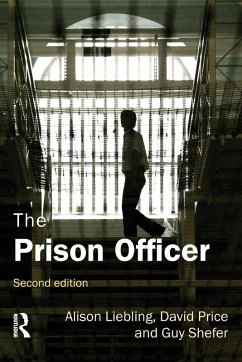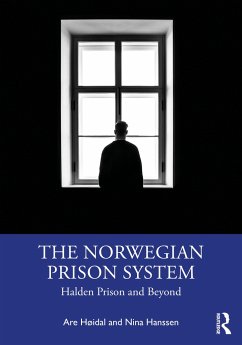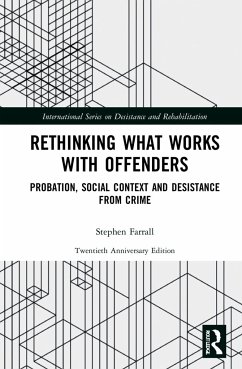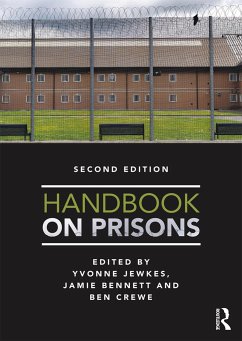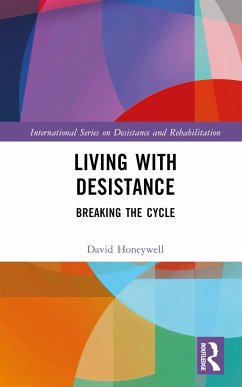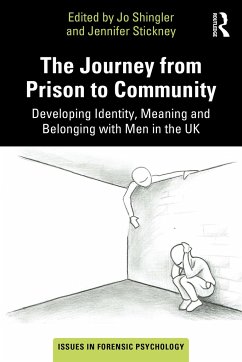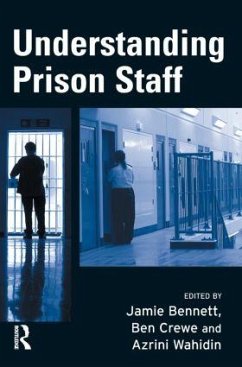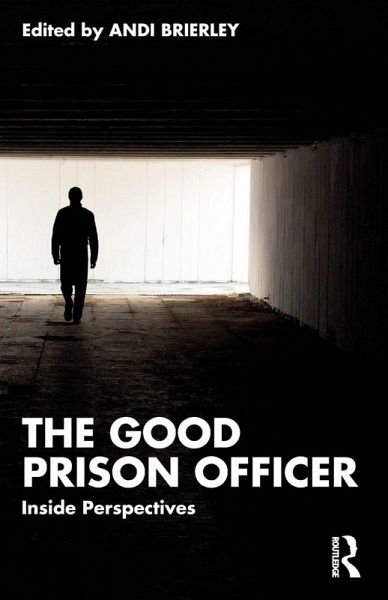
The Good Prison Officer
Inside Perspectives
Herausgegeben: Brierley, Andi
Versandkostenfrei!
Versandfertig in 6-10 Tagen
42,99 €
inkl. MwSt.

PAYBACK Punkte
21 °P sammeln!
This book offers a solution-focused and strengths-based guide to becoming an effective Prison Officer. Written and developed by a collection of ex-prisoners who are all now professionals, practitioners, and educators in the criminal justice field, the book draws on lived experience and the diverse literature on prisons and penal policy to explore good and bad examples of professional practice.The book is informed by the belief that those with direct experiences of custody and incarceration offer a vital perspective on the efficacy of penal practice. While these voices are often accessed throug...
This book offers a solution-focused and strengths-based guide to becoming an effective Prison Officer. Written and developed by a collection of ex-prisoners who are all now professionals, practitioners, and educators in the criminal justice field, the book draws on lived experience and the diverse literature on prisons and penal policy to explore good and bad examples of professional practice.
The book is informed by the belief that those with direct experiences of custody and incarceration offer a vital perspective on the efficacy of penal practice. While these voices are often accessed through research, it is rare they are seeking to lead the conversation. This book seeks to reset this balance. Drawing on themes such as discretion, respect, relationships, and legitimacy, it offers recommendations for best practices in developing a rehabilitative culture in prison.
This book will be of interest to practitioners, researchers, and educators alike. It is essential reading for all those engaged with prisons, punishment, penal practice, desistance, and rehabilitation.
The book is informed by the belief that those with direct experiences of custody and incarceration offer a vital perspective on the efficacy of penal practice. While these voices are often accessed through research, it is rare they are seeking to lead the conversation. This book seeks to reset this balance. Drawing on themes such as discretion, respect, relationships, and legitimacy, it offers recommendations for best practices in developing a rehabilitative culture in prison.
This book will be of interest to practitioners, researchers, and educators alike. It is essential reading for all those engaged with prisons, punishment, penal practice, desistance, and rehabilitation.





